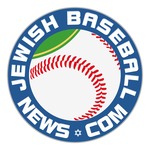New: Excerpt from umpire Al Clark’s memoir
By Scott Barancik, Editor From 1976 until MLB officials told him “You’re out!” in 2001, Al Clark was one of baseball’s most respected umpires, and among very few who were Jewish. In a new memoir written with Dan Schlossberg, the 66-year-old Clark recalls the highlights and lowlights of his life in and out of baseball,…
